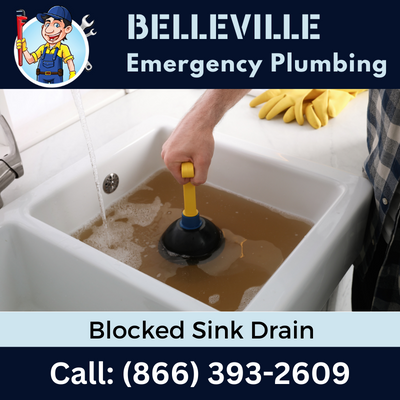Understanding Bellevilles Plumbing Codes and Regulations
Published at:8/28/2023 by in 'Emergency Plumbing' Category
Understanding Belleville's Plumbing Codes and Regulations=======================================================
Belleville, a city in Illinois, has specific plumbing codes and regulations that must be adhered to ensure the safety and functionality of plumbing systems. These codes are designed to protect public health, prevent water contamination, and maintain proper sanitation practices. It is essential for homeowners, contractors, and plumbers to have a clear understanding of these regulations before undertaking any plumbing projects.
One key aspect of Belleville's plumbing codes is the requirement for licensed plumbers to perform certain types of work. In many cases, only licensed professionals are allowed to install or repair plumbing fixtures such as water heaters or sewer lines. This ensures that the work is done correctly by individuals with appropriate training and expertise. Additionally, permits may be required for certain projects like new construction or major renovations. Homeowners should consult with the City Building Department before starting any significant plumbing work to determine if a permit is necessary.
Another important regulation in Belleville pertains to backflow prevention devices. Backflow occurs when non-potable water flows backward into the main water supply due to changes in pressure within pipes. To prevent this potentially hazardous situation from occurring, backflow prevention devices must be installed on all applicable connections such as sprinkler systems or irrigation lines. Regular testing and maintenance of these devices are also required by law.
By familiarizing themselves with Belleville's plumbing codes and regulations, residents can ensure compliance with local requirements while maintaining safe and efficient plumbing systems within their homes or businesses.
Introduction
Belleville, a vibrant city located in Ontario, Canada, has its own set of plumbing codes and regulations that govern the installation and maintenance of plumbing systems. These codes are designed to ensure public health and safety while promoting efficient water usage. In this blog post, we will delve into the details of Belleville's plumbing codes and regulations, providing you with a comprehensive understanding of what is required when it comes to plumbing in this city.
The Importance of Plumbing Codes and Regulations
Plumbing codes and regulations play a crucial role in maintaining the integrity of our infrastructure. They provide guidelines for plumbers, contractors, homeowners, and inspectors to follow during the design, installation, repair, or modification of any plumbing system. Adhering to these codes ensures that all work is done correctly and upholds high standards for quality.
In Belleville specifically, these codes help protect public health by preventing contamination of drinking water supplies. They also promote water conservation by setting requirements for efficient fixtures such as low-flow toilets and faucets.
Understanding Belleville's Plumbing Codes
To better understand Belleville's plumbing codes and regulations, let's explore some key areas:
1. Permit Requirements
Before undertaking any significant plumbing work within Belleville city limits (such as installing new pipes or fixtures), obtaining a permit from the local building department is mandatory. The permit process ensures that licensed professionals oversee important projects to guarantee compliance with applicable rules.
The application typically requires detailed information about the proposed work along with relevant fees paid upfront. It's essential not to skip this step since failure to obtain permits can result in fines or legal complications down the line.
2. Backflow Prevention
Backflow prevention is an integral part of protecting our potable water supply from contamination caused by backflow events – situations where non-potable water flows back into the clean water system. Belleville's plumbing codes require the installation of appropriate backflow prevention devices in specific circumstances, such as irrigation systems or commercial properties with potential cross-connections.
Licensed plumbers are well-versed in identifying scenarios that necessitate backflow prevention measures and can provide guidance on proper device selection and installation.
3. Fixture Requirements
Belleville's plumbing codes outline requirements for various fixtures to ensure water efficiency and functionality. For example:
Toilets: Low-flow toilets that use a maximum of 4.8 liters per flush are mandatory in all new construction or renovation projects.Faucets: Water-saving faucets with flow rates not exceeding 2.2 gallons per minute (GPM) must be installed.Showers: Showerheads should have a maximum flow rate of 9.5 liters per minute (LPM).
These regulations aim to conserve water without compromising user experience, contributing to sustainable practices within the city.
4. Drainage and Venting
Proper drainage and venting systems are essential for maintaining efficient plumbing operations while preventing unpleasant odors, blockages, or other issues caused by inadequate ventilation.
Belleville's plumbing codes specify guidelines for drain sizing, slope requirements, vent pipe placement, air admittance valves (AAVs), among other aspects related to drainage and venting systems.
It is crucial to consult licensed plumbers who possess expertise in designing these systems according to code requirements during any construction or remodeling project involving plumbing work.
The Role of Inspections
In Belleville, inspections play a vital role throughout the different stages of plumbing projects – from initial rough-ins to final connections. Trained inspectors evaluate compliance with local codes before granting approval for further progress on the project.
Inspections typically cover areas such as pipe installations, fixture placements, backflow prevention devices, drainage systems, and venting. It is essential to schedule inspections promptly to ensure adherence to code requirements and avoid potential setbacks or rework.
Conclusion
Understanding Belleville's plumbing codes and regulations is crucial for anyone involved in plumbing projects within the city. By following these guidelines, we can maintain public health standards, conserve water resources, and promote sustainable practices.
Remember always to consult licensed professionals who are knowledgeable about local codes when planning any plumbing work in Belleville. Adhering to the regulations ensures that your project meets safety standards while contributing positively to our community's overall well-being.